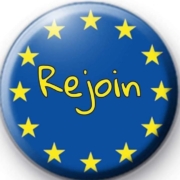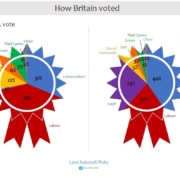The EU is not proposing to do anything that the UK and the US have not already done.
This weekend I was planning to write about Starmer and his current refusal to contemplate placing Rejoining the EU onto the agenda of the Labour Party. Instead, I find myself in very much the same situation as last weekend, i.e. writing about the fact that our opposition is currently still very active and that we therefore also need to be active, but that does not necessarily mean we need to start campaigning directly and openly for Rejoin, but rather we need to start preparing the ground for that ultimate campaign.
The issue that has brought this about is of course the situation with the EU, Astra Zeneca and the vaccine.
As the week has gone by, I have seen an increasingly concerning stream of news headlines about the situation saying that the EU has done this, or that the EU has taken the other action. On clicking the headline to find out more, in almost all cases, what I have actually found is that the headline has been an over exaggeration of what was really happening. The real situation was the EU was considering action, had given itself powers to act if the need arose, or considering a particular course of action – and nothing more.
This came to a head last night with very concerning news reports that the EU had triggered article 16. Digging a little deeper and a little time have revealed that the EU had not triggered article 16. Indeed, it is difficult to find out exactly what did happen. According to the press this morning it may or may not have been an ‘error’. It is simply not clear what has happened at this point in time.
Whilst there are clear issues with the EU’s vaccination program centring around a late start and a slow procurement process, what is also clear is that the real issue over the Astra Zeneca and the EU vaccine is a contractual one. Astra Zeneca agreed to supply a certain number of doses of the vaccine by a certain date and took money from the EU for that. Astra Zeneca subsequently informed the EU that it could not deliver and nothing more.
As a consequence, the EU has moved to secure a supply of the vaccine for their own citizens by insisting that Astra Zeneca meet its obligations under that contract, if necessary, including by supplying doses of the vaccine from production facilities in other countries including the UK. The contract between Astra Zeneca and the EU that has been published show that the EU is entitled under the terms of that contract to make such a request.
One could argue that the EU and Astra Zeneca should have sat round a table behind the scenes to address the problems and find acceptable solutions. Instead, we have witnessed a media debacle with the right-wing press in particular having a field day with, as already noted, over exaggerated headlines. In addition to those headlines, the media have portrayed the EU as being selfish and even trying to steal vaccines from other countries including the UK.
Not only I have seen no evidence to support those more serious claims, the media has also been very one sided. There has been almost no mention of the fact that before Christmas the UK banned the export of over 100 drugs that could be useful for treating Covid, or the fact that the US has totally banned the export of Covid 19 vaccines.
In other words, the EU is not proposing to do anything that the UK and the US have not already done.
This situation demonstrates something that most Rejoiners are already only too well aware of. There is a serious problem with the British Press – it is politically biased, often at the behest of wealthy owners, often misleading even dishonest, and also poorly and ineffective regulated, all of which are issues that need addressing.
These issues also circle back to the need for Rejoiners to be proactive and start preparing the ground for future battles. We should be calling for these issues to be addressed now. We should be campaigning for the current system of self-regulation to be replaced with a statutory system of regulation that is independent of the media to ensure accuracy now. We should be campaigning for a requirement for the media to be politically neutral to ensure fair reporting now.
In addition to the unfair, misleading and biased media coverage, our opponents have also been having a field day. A visit last night to the social media pages of Farage’s current political platform shows them exploiting the situation with rampant nationalism and xenophobia fuelled by misleading information, half-truths and outright lies about the EU and the situation.
This not only demonstrates the need for us to be proactive i.e. actually taking on the opposition rather than arguing amongst ourselves in our safe spaces, but also the need to hold politicians such as Farage to account for their actions, including their lies. Again, this is something that we could and should be doing now. But I have to ask how many of us are actually doing this?
At present one of my colleagues here at UKIN.EU, Joel Baccas, has a parliamentary petition active that calls for lying by politicians to be made a criminal offence. How many people reading this have actually signed it? How many people have spent longer that the 2 minutes it would take to sign it and send a clear message to the likes of Farage that what they are doing is unacceptable arguing that they can’t be bothered to sign petitions?
Which all comes back again to the need for Rejoiners to be proactive – nobody is going to do this for us. It is up to us. If you haven’t signed that petition find it and sign it now!
It is also worth noting that this whole media circus has also been very successful in diverting attention away from the effects of Brexit. The fishing industry is staring into the abyss, exports have slumped, and British firms are being advised by the British Government to set up shop in the EU meaning the loss of British jobs to the EU…It is easy to see why the right-wing media and our opponents are making such a fuss over this – they needed something to divert attention away from the mess they have created!







